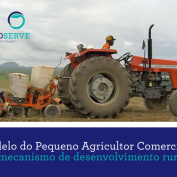
Small Commercial Farmer Model Impact Report
Learn about the impact of TechnoServe’s small commercial farmer model as a mechanism for rural development.

Learn about the impact of TechnoServe’s small commercial farmer model as a mechanism for rural development.
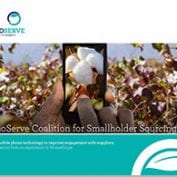
This case study from the TechnoServe Coalition for Smallholder Sourcing examines an innovation piloted by a cotton agribusiness in Mozambique that used a mobile-phone platform to improve its engagement with farmers.
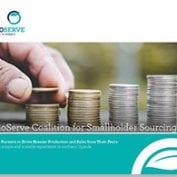
This case study from the TechnoServe Coalition for Smallholder Sourcing examines how a performance-based cash incentive piloted by an agribusiness in Uganda stimulated maize production and sales among smallholders involved in contract farming.
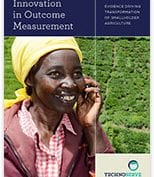
Evidence Driving Transformation of Smallholder Agriculture: The final report for TechnoServe’s IOM initiative details the innovative models piloted under four programs as well as lessons learned.
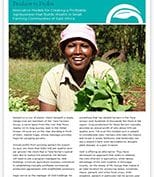
In this case study, TechnoServe’s Innovations in Outcome Measurement (IOM) initiative explores innovative models for creating a profitable agribusiness that builds wealth in small farming communities of East Africa…
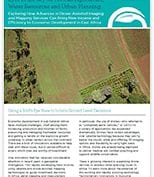
In this case study, TechnoServe’s Innovations in Outcome Measurement (IOM) program explores how advances in drone-assisted imaging and mapping services can bring new income and efficiency to economic development in East Africa.
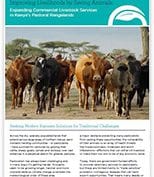
In this case study, TechnoServe’s Innovations in Outcome Measurement (IOM) initiative explores how to expand commercial livestock services across Kenya’s rangelands by evaluating which business models can provide sustainable agrovet services to pastoralist communities.
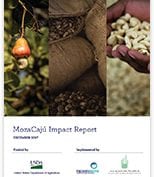
This report outlines four years of impact and insights from the MozaCajú program, which supported the Mozambican cashew nut industry by harnessing global market demand for premium cashew and addressing obstacles throughout the value chain, including production, inputs, processing, finance, and marketing.
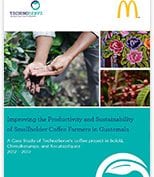
This case study discusses TechnoServe’s work to improve farmers’ productivity and adoption of good agronomic practices over five years in Guatemala, analyzing lessons learned and the model’s potential to be brought to scale in Guatemala and other coffee-producing countries.
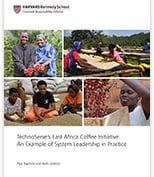
This case study by the Harvard Kennedy School reviews the ability of TechnoServe’s East Africa Coffee Initiative to achieve inclusive and sustainable growth by aligning the incentives of various stakeholders and building their capabilities to accelerate and scale progress.